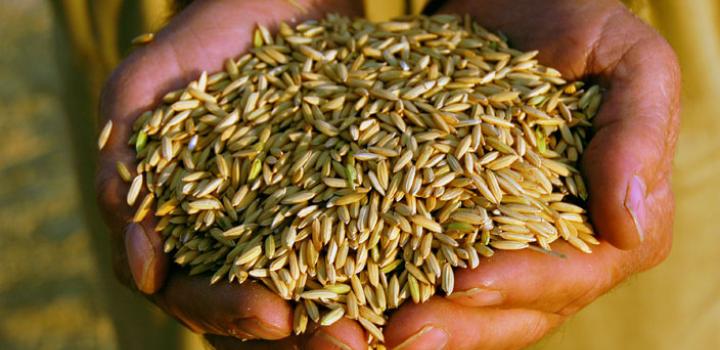Groundbreaking for $18.5 million Northeast Rice Research and Extension Center held in Poinsett County
by May 10, 2023 10:07 am 1,068 views

A groundbreaking was held Tuesday (May 9) for a new land-grant research and extension center near Harrisburg in Poinsett County to serve the needs of rice growers in Northeast Arkansas.
The Northeast Rice Research and Extension Center is owned and operated by the University of Arkansas System Division of Agriculture. The $18.5 million center is funded by the Division of Agriculture, with a grant from the Arkansas Rice Research and Promotion Board from Tariff Rate Quota funds from a U.S.-Colombia trade promotion agreement specifically directed to rice research.
No checkoff funds are being used in the center’s construction.
“As rice production in northeast Arkansas continues to become more important for the area, we are positioned to provide critical research and outreach support through this center for the region’s growers,” said Deacue Fields, vice president-agriculture, for the University of Arkansas System. “We are very grateful to the Arkansas Rice Research and Promotion Board and to the Arkansas Legislature for their support of this project.”
The center has been conducting research on the 600-acre location since 2021, according to Tim Burcham, center director.
“When complete, the Northeast Rice Research and Extension Center will provide research and outreach programs that will, one, explore sustainable rice production practices, and two, address the resiliency and economics of rice production practices in the region,” Burcham said.
The center’s silt loam soils are typical for rice production in Northeast Arkansas, which allows the division to translate research results for the region’s farmers more directly.
“In addition to the research and outreach programs, the center will also feature a specific educational program that helps grade-school children learn about rice production practices in Arkansas and the importance of rice to people from around the world,” he said.
“The soils and microclimate of northeast Arkansas make it a very unique place to grow rice,” said Jean-François Meullenet, director of the Arkansas Agricultural Experiment Station. “Because of those factors, we are eager to continue the research needed to help growers make the most of the conditions.”
Joe Christian, chairman of the Arkansas Rice Research and Promotion Board, said the planned education center is one of his favorite components of the new facility. He said he envisions youth and the rest of the public learning about agriculture in Arkansas, particularly the rice industry.
“We can teach people what we do, why we grow rice,” he said. “That’s what I’m more excited about more than anything. We really need to educate the general public about what we do as rice farmers.
“If we don’t tell our story,” he said. “Nobody will.”
The U.S. and Colombia have a trade agreement that allows for a set amount of rice to be exported duty-free to Colombia each year. Through the Tariff Rate Quota, or TRQ, system, U.S. exporters can “rent” part of that set amount during an annual auction and avoid paying the export tariff, which is a fee that exporters have to pay to send goods to another country.
The proceeds of the auction are evenly divided between the U.S. and Colombia. In the U.S., the TRQ proceeds are allocated to the rice-producing states based on average rice production. Arkansas typically receives around 45% of those funds.
